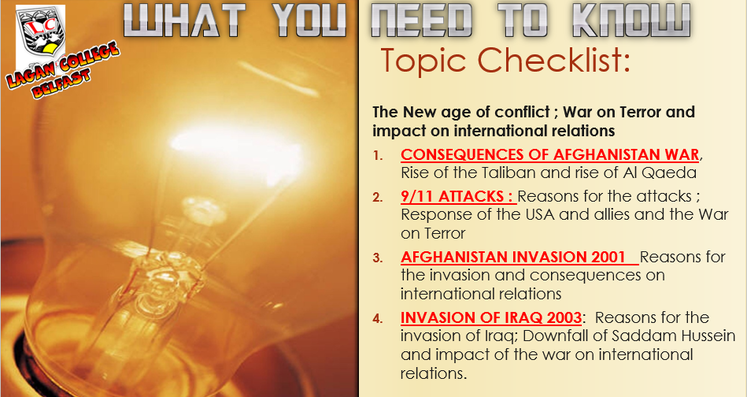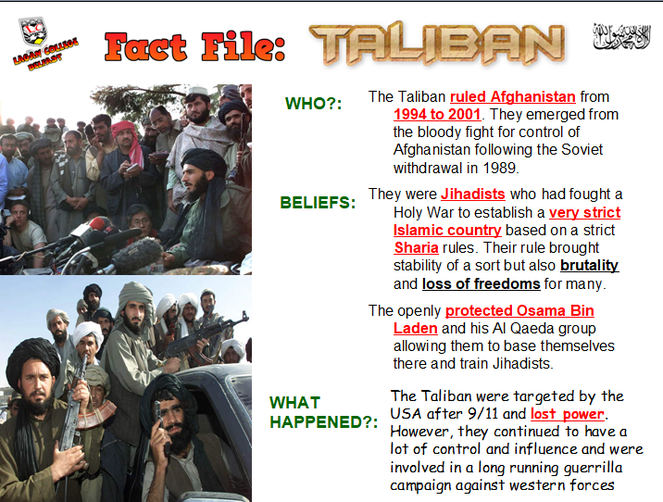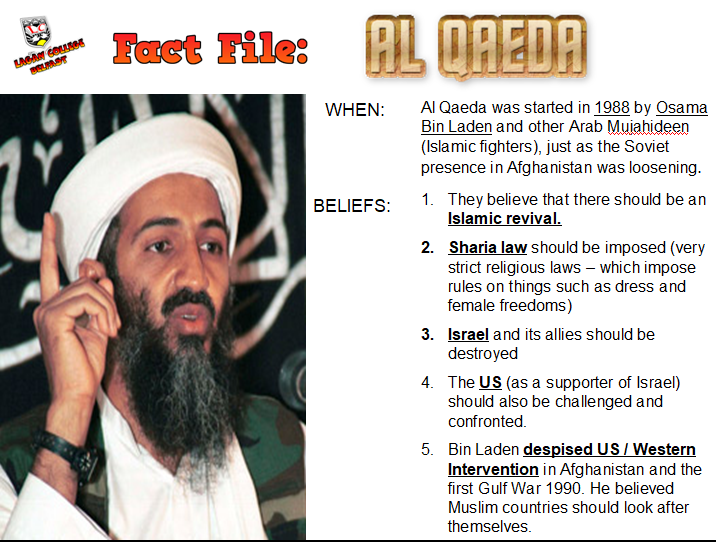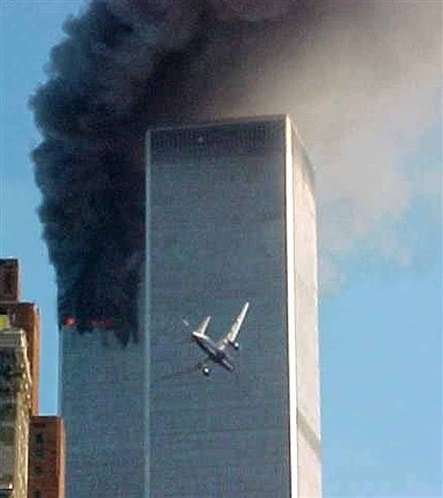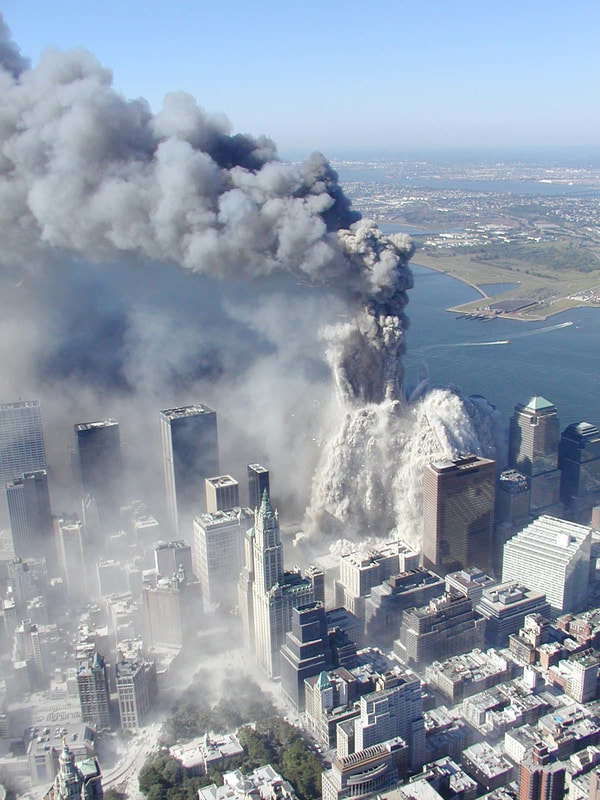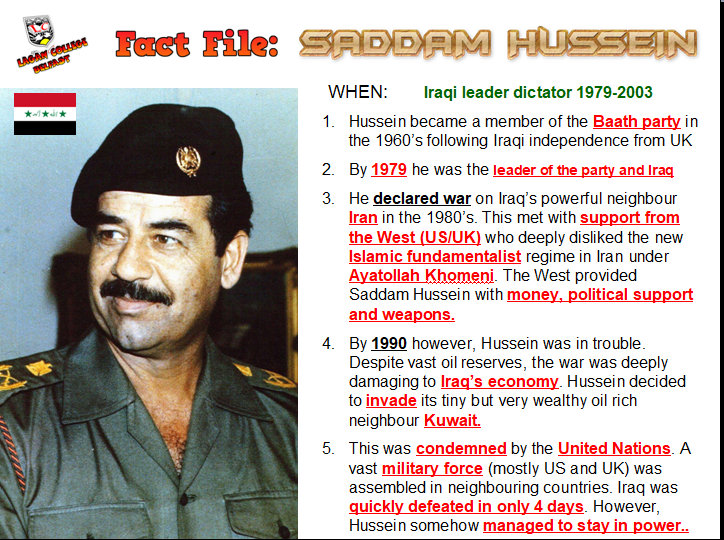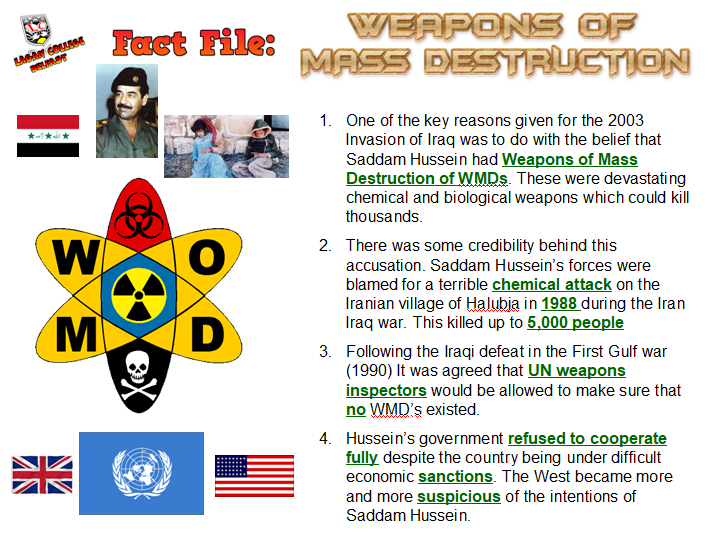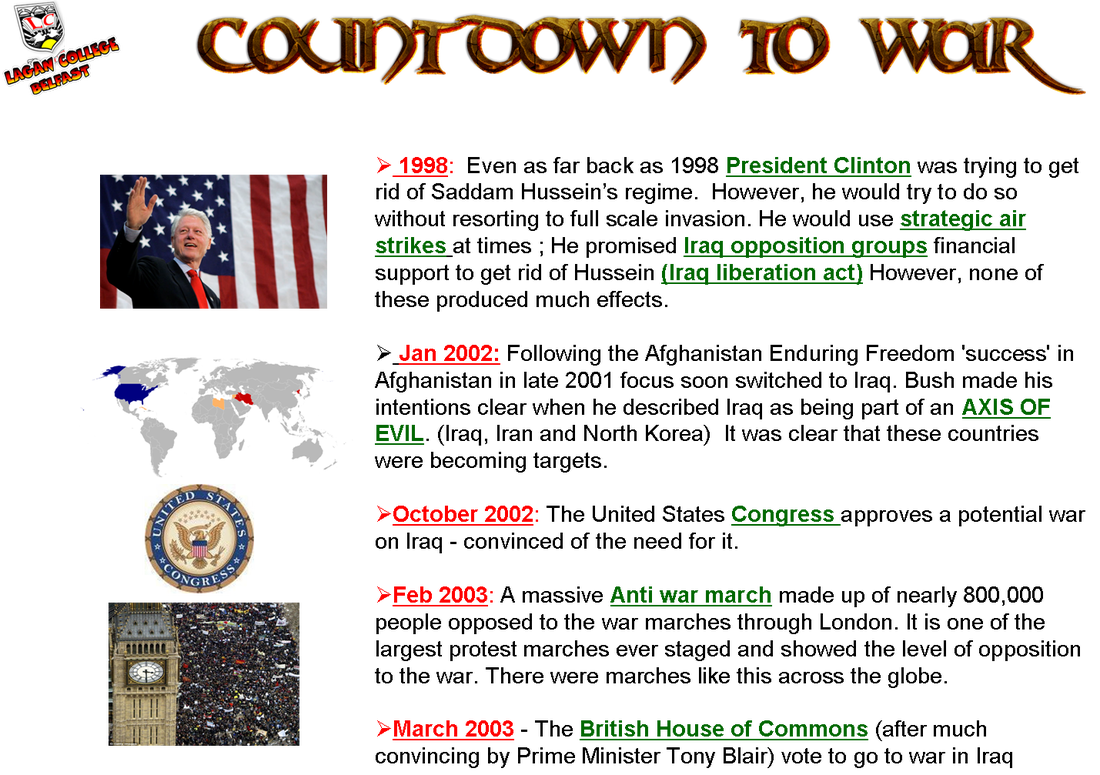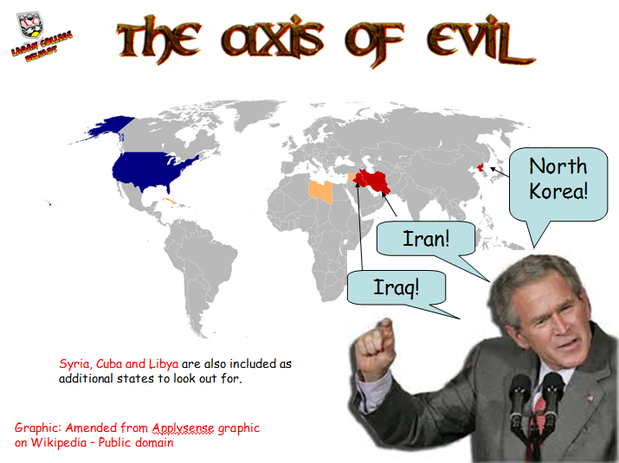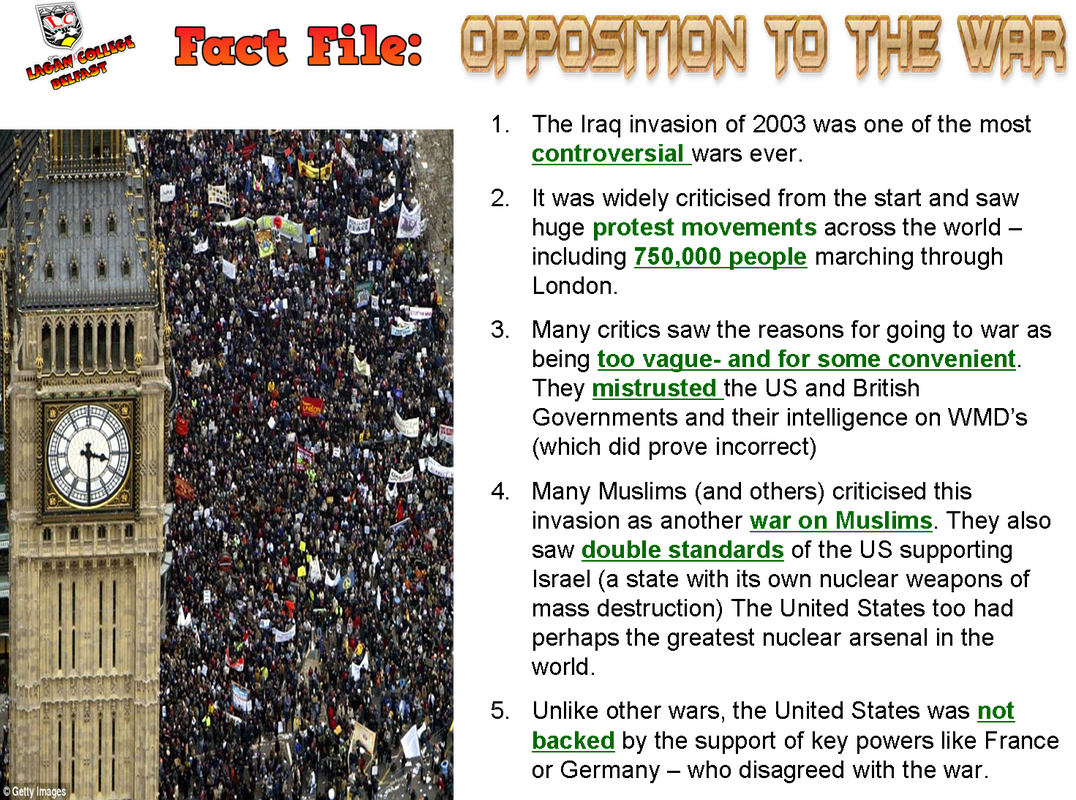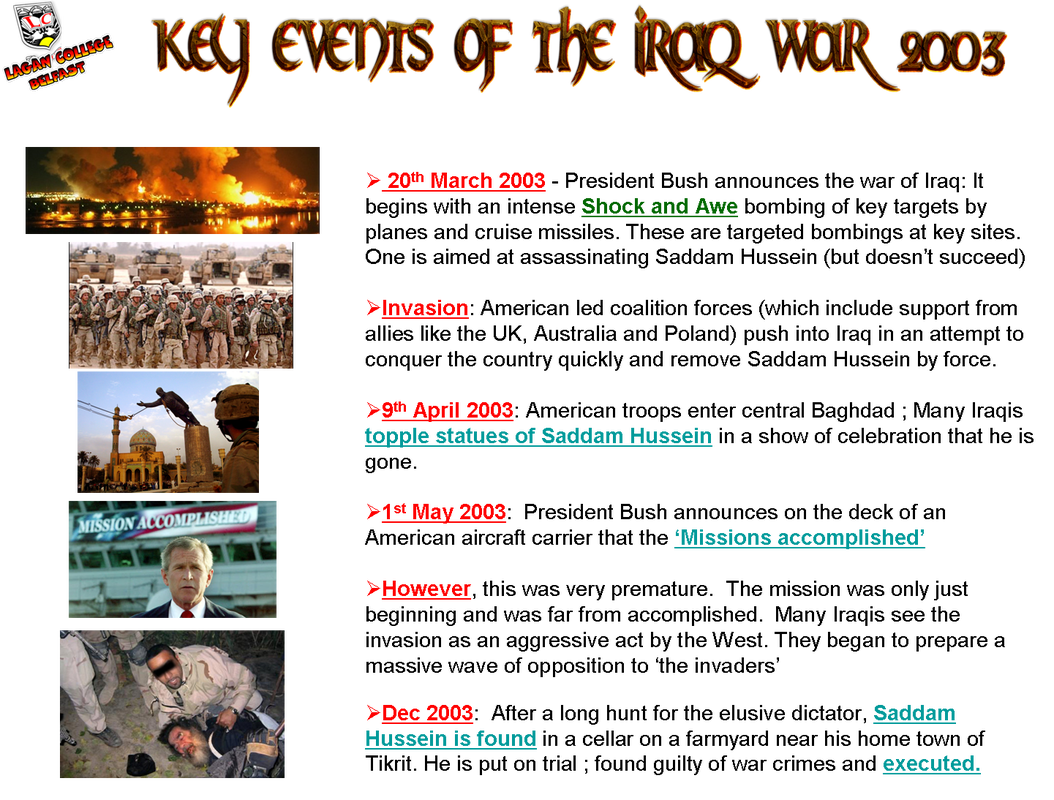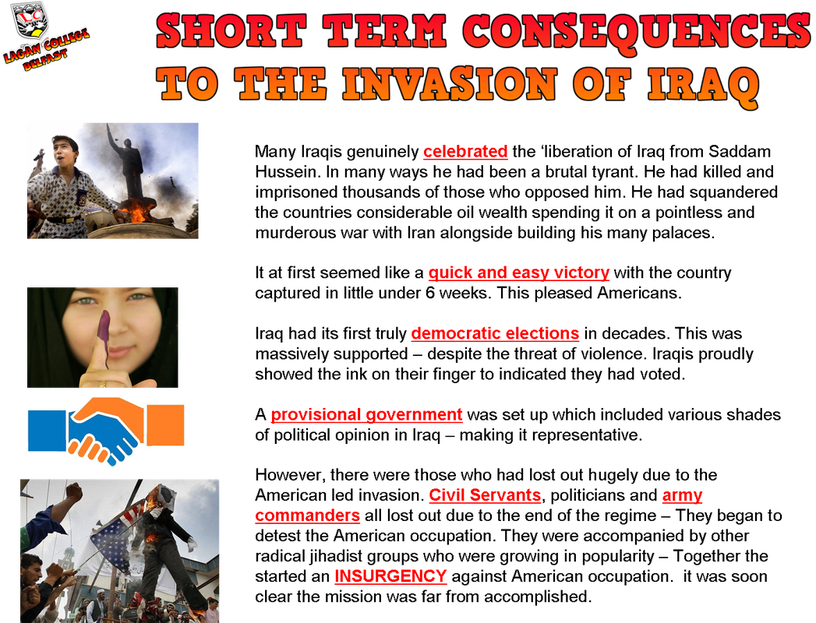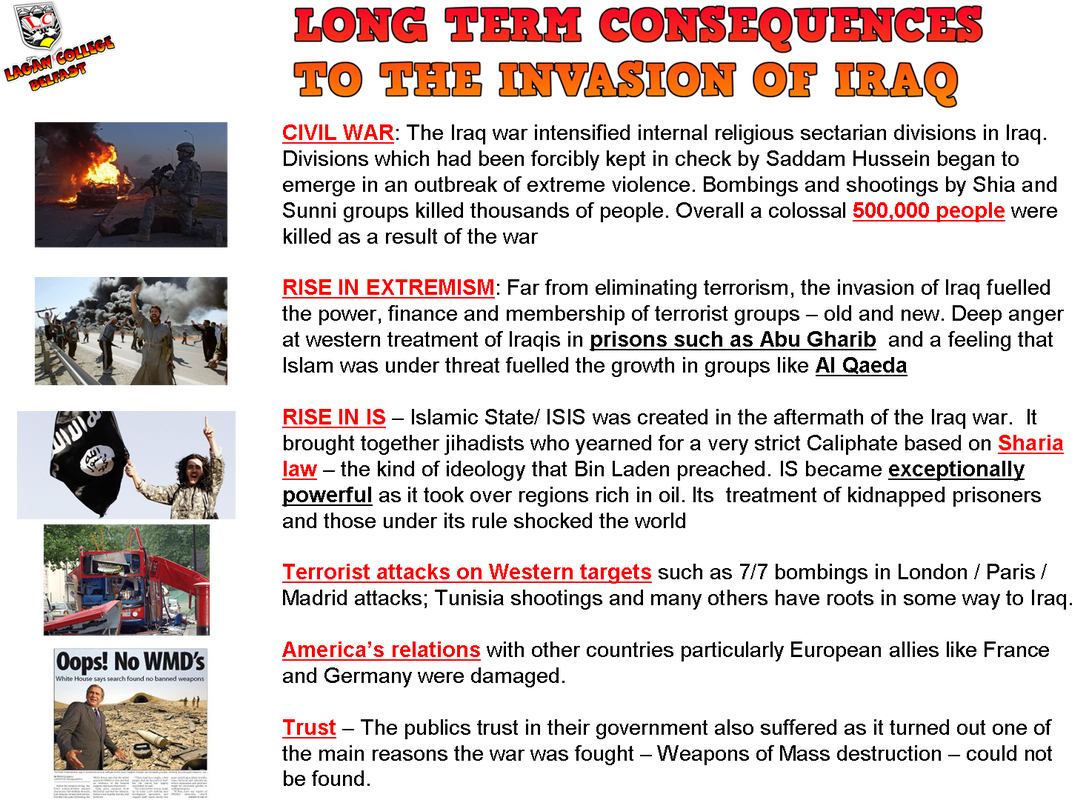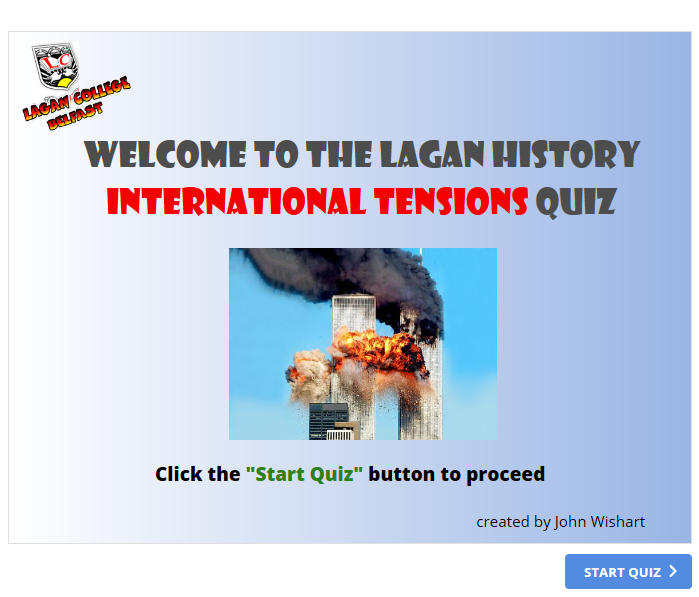The end of the Cold war seemed to many to be the start of something promising and peaceful. One thinker even called it the 'End of History' However, the Cold War had ironically kept many other conflicts at bay for years. With it's ending new conflicts emerged - many of them were much harder to control and perhaps as frightening and dangerous as the Cold War itself. Narrow nationalism tore up the European map again with a bloody civil war over the former Yugoslavia. However, it was the Middle East that the consequences of the ending of the Cold war and rise in Islamic fundamentalism would soon have a huge impact for the region itself and the world.
The Soviet invasion of Afghanistan proved very costly for the USSR (Perhaps its Vietnam war) It lost over 15,000 members of its armed forces. It withdrew its forces in 1989. What followed however was far from peace:
- The Americans had secretly helped to defeat the Soviets in Afghanistan through supplying the MUJAHIDEEN with money and especially weapons. These were Islamic warriors made up of Afghans and members of other Islamic nations. They believed they were fighting a jihad (Holy war) against Communism. However, when they were successful in removing the Soviet Union, Afghanistan broke down into chaos and civil war as the differing Mujahideen factions all fought for control of the country.
- This power vacuum was eventually filled in the 1994 by a group called the TALIBAN. These were very strict Muslim fighters who imposed strict Sharia law on Afghanistan. Soon girls were prevented from attending school ; The burka (full covering) was imposed and photographs were even banned in some places. This regime was backed up by Pakistan.
- The Taliban also sheltered some controversial and dangerous figures. One of them was OSAMA BIN LADEN.
- Bin Laden was the leader of the terrorist AL QAEDA GROUP which he had formed in 1988. He was from a very wealthy Saudi billionaires family but he had become involved as a fighter for the Mujahideen in the Afghan war. He was committed to spreading Jihad across the globe and wiping out western (American) influence. He used Afghanistan and its remoteness as a place to create training camps and spread the jihadist message.
AL QAEDA did not simply emerge from nowhere in 2001 with 9/11. They had launched a number of attacks on targets across the world - They attacked a number of US embassies in Africa with the attack in Kenya proving particularly deadly. It was clear that Al Qaeda was posing a greater and greater risk to American interests.
|
|
|
|
On September 11th 2001, Al Qaeda launched its most deadly attack yet. An attack which would have profound consequences on recent world history.
In a series of plane hijackings it attacked or attempted to attack key economic and military targets in the United States of America.
REASONS FOR THE ATTACKS:
|
RESPONSE TO 9/11 ATTACKS
- THE WAR ON TERROR DECLARED: Nearly 3,000 people were killed on September 11th. This was more than were killed at Pearl Harbour, the Japanese attack on an American Naval base in 1941 which sparked the entry of the United States into the Second World War. The United States therefore regarded it as a declaration of war (as Al Qaeda had hoped) The American President George W Bush declared a WAR ON TERROR. dedicated on hunting down those who had carried out this attack and their supporters. This war begins to include allies like the United Kingdom who fight in both Afghanistan and Iraq.
- WAR IN AFGHANISTAN - The United States started its war on terror by targeting Afghanistan, the country ruled by the Taliban that had willingly sheltered Osama Bin Laden. In Operation Enduring Freedom it attacked the country in October 2001 - quickly pushing out the Taliban but creating a much more complex and deadly war.
- WAR IN IRAQ- The United States widens its war on terror to include Saddam Hussein and Iraq. There is little connection between 9/11 and Iraq and this looks like opportunism on the part of the United States to get rid of a troublesome dictator - Saddam Hussein and try to create a stable democracy in the Middle East - a plan which goes horribly wrong.
|
|
|
The first country targeted by the United States in its War on Terror was Afghanistan.
WHY?
WHY?
- Afghanistan, the USA believed, was clearly implicated in the 9/11 attacks. Its hard-line Taliban government were openly opposed to the United States and had been sheltering Osama Bin Laden and Al Qaeda for years.
- Afghanistan was regularly and openly used for military training camps to train jihadists to fight across the world.
- It was also reported to still be the hiding place of Osama Bin Laden - who was believed to be hiding deep in the remote Tora Bora mountains.
- The US President George W Bush was also keen to quickly display decisive actions to Americans who wanted revenge and retribution for the 9/11 attacks which had cost so many lives.
What happened?
- The United States teamed up with anti Taliban tribal forces in Afghanistan along with western allies like Canada and the United Kingdom to get rid of the Taliban in Afghanistan.
- In OPERATION ENDURING FREEDOM beginning in October 2001, they managed to remove the Taliban from power in a very short period of time with little resistance.
- In 2002 the UN (United Nations) declared both the Taliban and Al Qaeda to be 'terrorist organisations' They subsequently sent a peacekeeping force to Afghanistan to try and maintain peace. This was important as it made it seem less like a United States war.
- NATO (North Atlantic Treaty Organisation) for the first time in its history suggested that the 9/11 attacks constituted an 'attack on all' whereby if one of their group was attacked the other countries in NATO would respond to protect it. Although this was initially symbolic, in 2003 NATO did become involved militarily in Afghanistan.
- A new provisional Afghan government was voted on democratically. It elected Hamid Karzai as leader. However, there were many political and tribal divisions.
- However, maintaining control of Afghanistan (like Iraq) would prove a long and deadly war costing billions of dollars and many lives.
- Controversial American methods such as interrogation of prisoners and sending them to tough prison regimes in Guantanamo bay in Cuba created an international stir and led to many Muslims criticising the Americans. Some would become radicalised by it (they would begin to follow or support more extreme groups and want to act against the USA/UK) Terror attacks such as the London 7/7 bombings are linked to such thinking.
- Osama Bin Laden, despite probably the most intense manhunt in history, managed to evade capture until he was tracked down living secretly in a compound in Pakistan in 2011. He was killed in an American Special Forces raid.
- Even today the country remains divided and very politically unstable with a continued western military presence.
Consequences on International relations
- A new provisional Afghan government was elected democratically. Hamid Karzai was its first leader. However, there were many political and tribal divisions which constantly threatened stability. The country also remained severely impoverished by decades of war.
- Taking over Afghanistan had proved relatively easy. However, maintaining control of Afghanistan (like Iraq) would prove a long and deadly war costing billions of dollars and many lives.
- Controversial American methods such as interrogation of prisoners and sending them to tough prison regimes in Guantanamo bay in Cuba created an international stir and led to many Muslims criticising the Americans. Some would become radicalised by it (they would begin to follow or support more extreme groups and want to act against the USA/UK) Terror attacks such as the London 7/7 bombings are linked to such thinking.
- Osama Bin Laden, despite probably the most intense manhunt in history, managed to evade capture until he was tracked down living secretly in a compound in Pakistan in 2011. He was killed in an American Special Forces raid.
- Even today the country remains divided and very politically unstable with a continued western military presence.
- The initial success in Afghanistan would encourage President George W Bush to invade Iraq in 2003 - a country which was not implicated in 9/11.
|
|
|
The 2003 invasion of Iraq together with 9/11 have helped shape our modern world. They have certainly helped to create the international situation today with its continual problems with terrorism and Islamic extremism.
BACKGROUND
The invasion of Iraq was a highly controversial event and one that still causes a lot of controversy. It has a long history connected primarily with one man - SADDAM HUSSEIN - ruler of Iraq from 1979 to 2003.
|
|
|
WMD's (Weapons of Mass Destruction)
WHY DID THE US/UK INVADE IN 2003
One of the biggest issues regarding the 2003 Invasion of Iraq is in why it happened and was it justified. These are some of the reasons:
- AL QAEDA: President George W Bush was convinced that Iraq was behind some of 9/11 planning. He believed Al Qaeda was being helped and financed from Iraq. This was never proven. There is history in the Bush connection . His father - George Bush senior was President of the US during the first Gulf war in 1990- Many considered this unfinished business by the Bush family!
- WMD's: British and American intelligence services both deeply feared that Hussein had WMD's and was prepared to use them. His use of them previously in the Iran Iraq war made them fear this. They also knew Hussein was under increasing pressure and could be forced to do something drastic to stay in power.
- IDEALISM: Tony Blair seemed to think that a new, democratic and rich country (with oil reserves) could become a beacon for western style democracy and capitalism in the Middle East. Blair had saw success in some smaller conflicts in Sierra Leone and Kosovo so felt that sometimes military intervention worked.
- OIL: Some critics felt that the war in Iraq was solely to do with securing a solid source of Oil.
EVENTS LEADING TO INVASION
|
|
|
|
|
|
